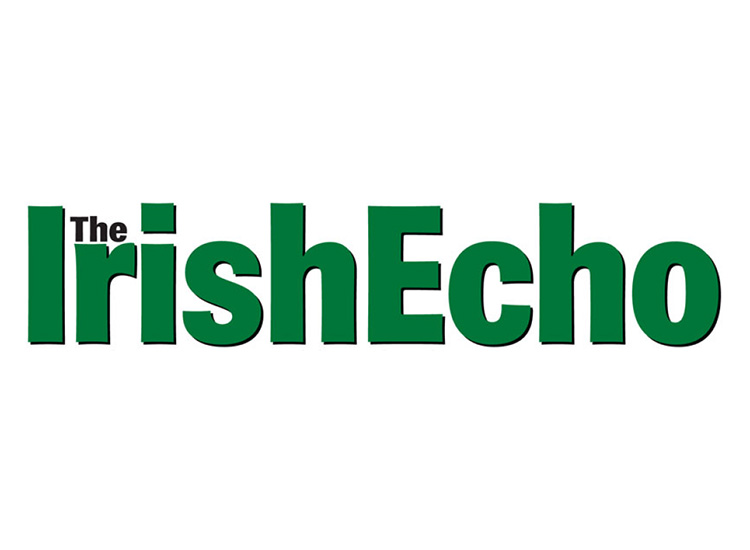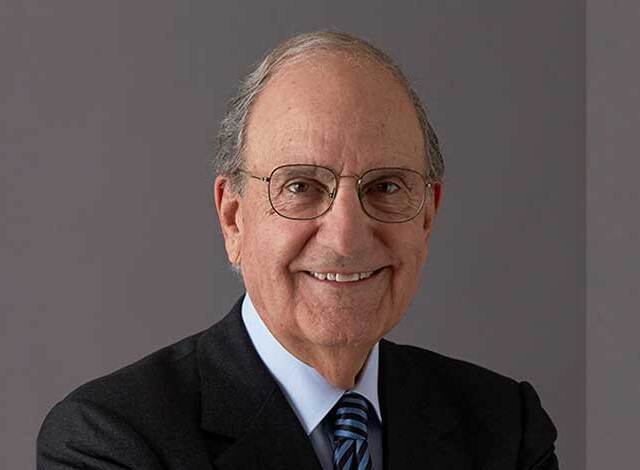He took time out on Bloomsday to read lines from James Joyce in Manhattan's Bryant Park, but Irish finance minister Michael Noonan could rightly claim that this time out from a more typical schedule was more than justified.
After all, what is Bloomsday these days if not a sales opportunity for an economy that needs to be marketed anew after the last version became so stately and plump that it popped.
"I'm here to give opinion and decision makers a better view of what we are about," Noonan told reporters during a sit down press conference at the Irish Consulate in a week when he held meetings with business and political leaders in New York and Washington, D.C.
Many in the U.S. did not understand the progress that had been made by Ireland, despite current difficulties, Noonan said while emphasizing that the Irish government was in a position to draw down the money needed to "pay our way."
Noonan's comment came in the wake of reports that while in Washington he had indicated that his government plans to impose "substantial" losses on senior bondholders in Anglo Irish Bank and Irish Nationwide Building Society in what the Irish Times described as "a significant policy reversal."
Up until now, the view has been that the Irish government's bailout of the Republic's banking system was a burden for taxpayers alone.
Noonan insisted that while the reports were accurate they were "out of context" and that the matter had been given more weight than it deserved because of the economic crisis affecting Greece.
No meeting were planned at this juncture and there would be no unilateral move by his government that would leave out the views of Ireland's European partners as expressed through the European commission and European Central Bank.
The Irish Times had reported that Noonan had stated that he had won support for the move from top officials at the International Monetary Fund in Washington.
With Greece making the biggest and most negative headlines in recent days, Noonan was art pains to present Ireland as being an economy that, while troubled, was in far better shape than its Greek counterpart.
"There are 1.8 million people at work," he said while sating that while there was again emigration it was not as bad as the late 1980s when there had been only 930,000 at work in the Republic.
"We are rebuilding the tourist industry and I'm saying to all Irish Americans that if you can convince one friend to come to Ireland this summer it will swell the numbers," the minister said.
Noonan had clear message to deliver to those that he met with during a visit that lasted most of the week. One of the most prominent individuals that he sat down with was with Treasury Secretary Timothy Geithner.
Geithner, he said, supported the "program" for Ireland - that being the bailout and its terms - but was not himself going to get involved in Ireland's internal affairs.
Noonan's assertion regarding Geithner's position was in clear reference to recent reports that prompted U.S. denials that Geithner had "torpedoed" a plan to allow Ireland to write-off some of its bank debts.
That denial came after UCD economist Morgan Kelly last month said that Geithner had played a key role in the negotiations on how to deal with Ireland's massive bank debts.
Kelly said that during last year's bailout negotiations the IMF had presented a plan to impose a "haircut" on €30 billion of un-guaranteed bank bonds.
These were bonds not covered by the state banking guarantee and the "haircut" would have reduced the state's liability by two-thirds, or €20 billion.
Kelly said the deal was "torpedoed" unexpectedly by an intervention by Geithner. Kelly claimed that Geithner believed bankers took priority over taxpayers. The report said that "a senior U.S. official" had dismissed Kelly's assertions as "inaccurate".
The official pointed out that the European Central Bank and the European Commission did not want to impose haircuts on bondholders who loaned money to Irish banks.
"The ECB and EC were both dead opposed and they are decisive. The U.S. is not a decision maker on European issues," the official was reported as saying at the time the story broke in mid-May.
On the matter of the "program," a word he used repeatedly during his meeting with reporters, Noonan said his government was going to "stick to the program and generate an Irish recovery."
He also insisted that the low Irish corporate tax rate of 12.5 percent was "non-negotiable" and that people could rely on it not changing.
"Systematically we're ticking off the boxes, getting the job done," Noonan said of his government's efforts to restore Ireland's finances.
Noonan said that he was glad to be getting another opportunity in government, now working under his third taoiseach. He was going to work every day to get Ireland out of its present predicament.
"So far, so good. I'm very conscious of building morale and confidence," he said.









